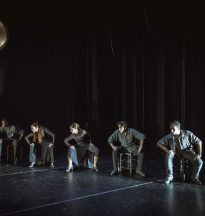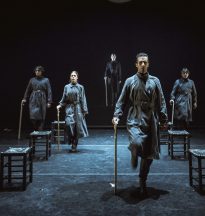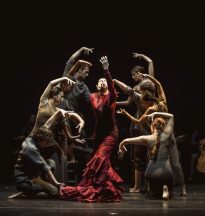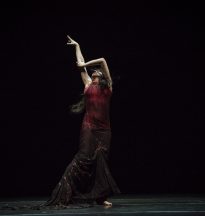ABOUT THE SHOW
An ode to time is a flamenco choreography about contemporaneity and the required dialogue with the memory. From the Flamenco María Pagés raises an ethical and artistic reflection on the present. She wonders about what is going on in the world. Checks the light and the disturbing shadows that mark our time. Reflects on the effects of the relentless irreversibility of time on the body, desire art and life.
It’s an allegory about the time we live, with its possibilities of happiness, utopias, terrorism, attacks on equality, backslides in democracy… Ideas of Platón, Margarite Yourcenar, Jorge Luis Borges, Pablo Neruda flow through María Pagés’ veins, united by an in-depth investigation on the ontology of the piece of art.
Dancing from maturity and accompanied by eight female and male dancers and seven musicians, María Pagés explores the traditional Spanish culture, revises the palos flamencos nourishing them with the best of Goya, Picasso, John Cage and their unique world perspective. Her career is marked by the desire for innovation and learning. The continuous tension between the individual and the community, the circle and the straight line, the argument and the abstraction, the silence and the percussion.
In a script that goes beyond the traditional flamenco dramaturgy, the rhythm sought in An ode to time is precisely the one that reflects on it’s changing and polymorphous condition. The chorographical sequences are swift, shear and are done and undone almost in the same rhythmic way of a slide projector. The constant tension between the individual and the community is sought, the circle and the straight line, the argument and the abstraction, the silence and the percussion.



